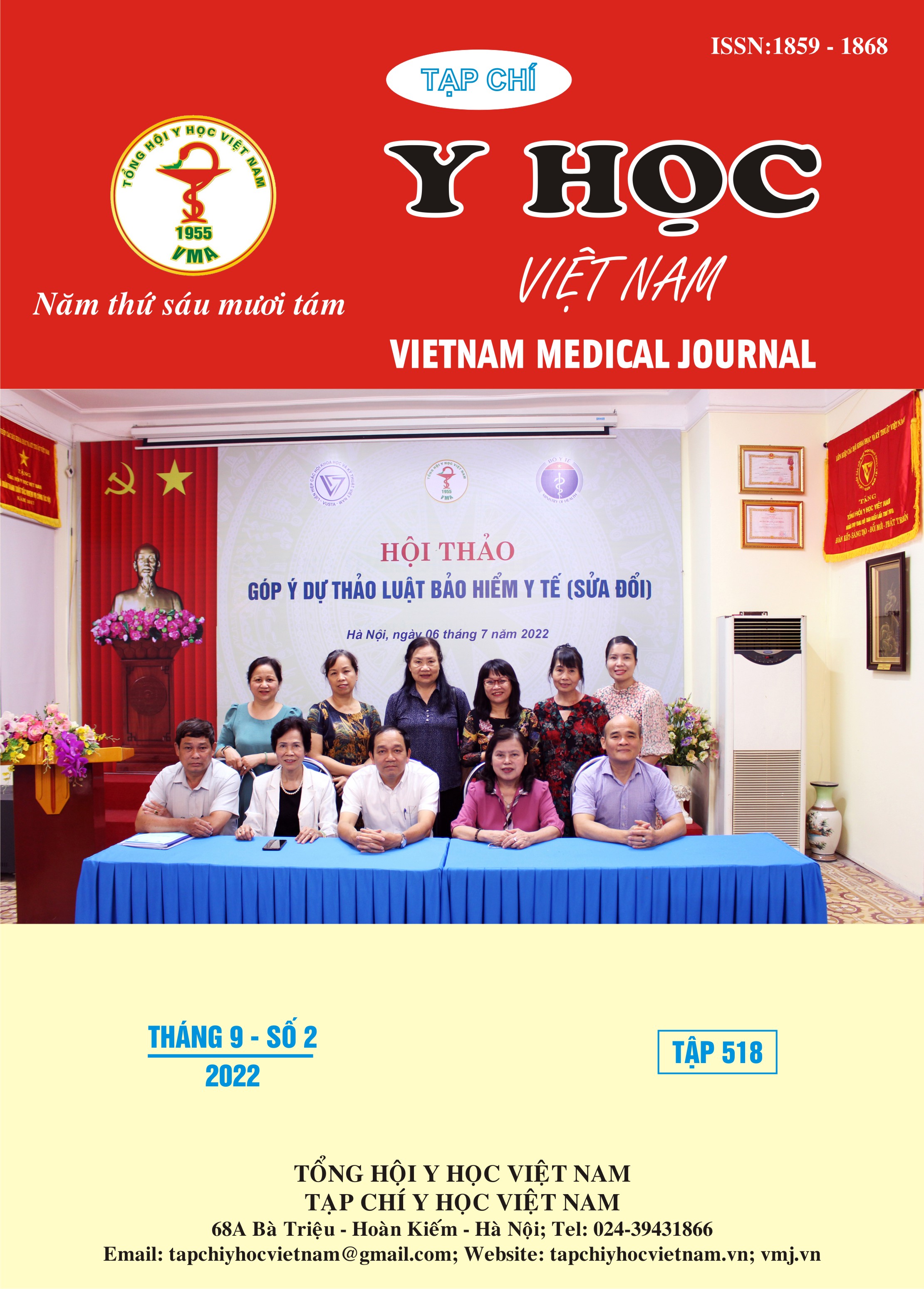FACTORS AFFECTING THE RESULT OF SEMEN VACCARIAE (WANG – BU – LIU – XING) EAR SEEDS VIA NADA PROTOCOL IN TREATING INSOMNIA IN TRADITIONAL CHINESE MEDICINE
Main Article Content
Abstract
Objectives: This study aimed to describe the factors affecting the effectiveness of Semen Vaccariae (Wang-bu-liu-xing) ear seeds on acupoints according to NADA protocol in the treatment of insomnia in Traditional Chinese Medicine (TCM). Methods: Controlled interventional clinical trial, comparing results before and after treatment. Subjects: 60 patients diagnosed with insomnia by TCM, categorized into 3 patterns: Heart-Spleen Dual Vacuity pattern, Yin Deficiency Fire Excess pattern, and Liver Qi Stagnation leading to fire pattern. Results: Patients who were married and lived with their families had significant improvement accounting for the vast majority (93.3%). Patients with "little improvement" accounted for the majority of patients with comorbidities such as hypertension (83/3%), and the group of patients with a habit of using electronic devices 1 hour before bedtime (100 %). Conclusions: Patients who got married or lived with family ,tended to improve their sleep at a higher level of significantly improved than the ones living alone. Patients with comorbidities such as high blood pressure or the habit of using electronic devices 1 hour before bed tended to have a little improvement in sleep. However, the difference was not statistically significant between the levels of sleep improvement with marital status, living situation, coexisting health conditions, and living habits before going to bed with p > 0.05.
Article Details
Keywords
Insomnia, Wang Bu Liu Xing, NADA
References
2. N. T. Quyến và T. C. Đào. “Chứng không ngủ được” trong Chẩn đoán phân biệt chứng trạng trong Đông y. Hà Nội, NXB Văn hóa dân tộc; 2007:288-296.
3. American Psychiatric Association (2013). Diagnostic and statistical manual of mental disorders: DSM-5. 5th ed. Washington, D.C
4. Kenneth Carter, Michelle Olshan-Perlmutter (2014). NADA Protocol Integrative Acupuncture in Addictions. Journal of Addictions Nursing; 25(4):182-187.
5. Morin CM, Belleville G, Bélanger L, ed al. The insomnia severity index: psychometric indicators to detect insomnia cases and evaluate treatment response. SLEEP 2011. 2011;34(5):601-608.
6. Célyne H. Bastien, Annie Vallières, Charles M. Morin (2001). Validation of the Insomnia Severity Index as an outcome measure for insomnia research. Sleep Medicine. 2:297 – 307.
7. Rafique N., Al-Asoom L.I., Alsunni A.A. và cộng sự. (2020). Effects of Mobile Use on Subjective Sleep Quality. Nat Sci Sleep, 12, 357–364.


